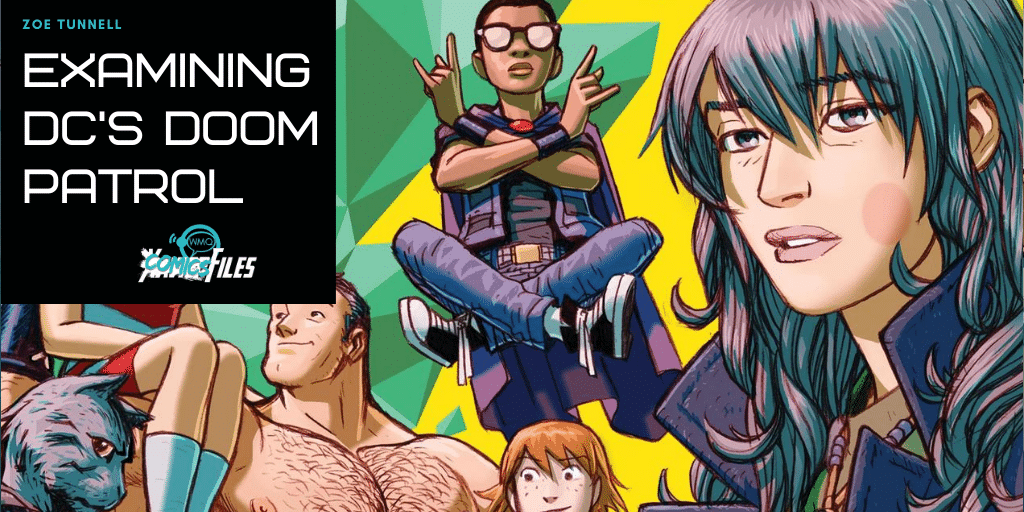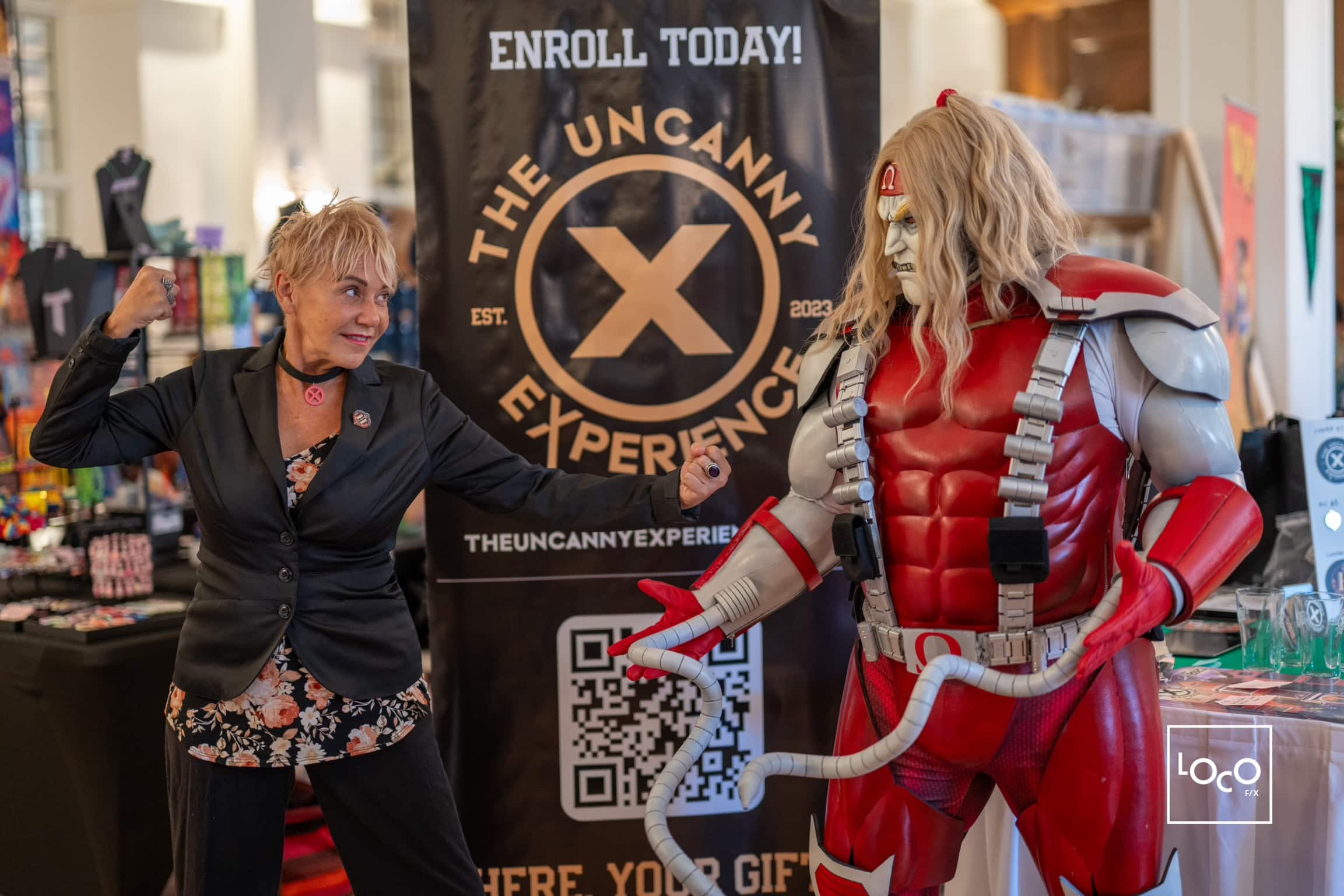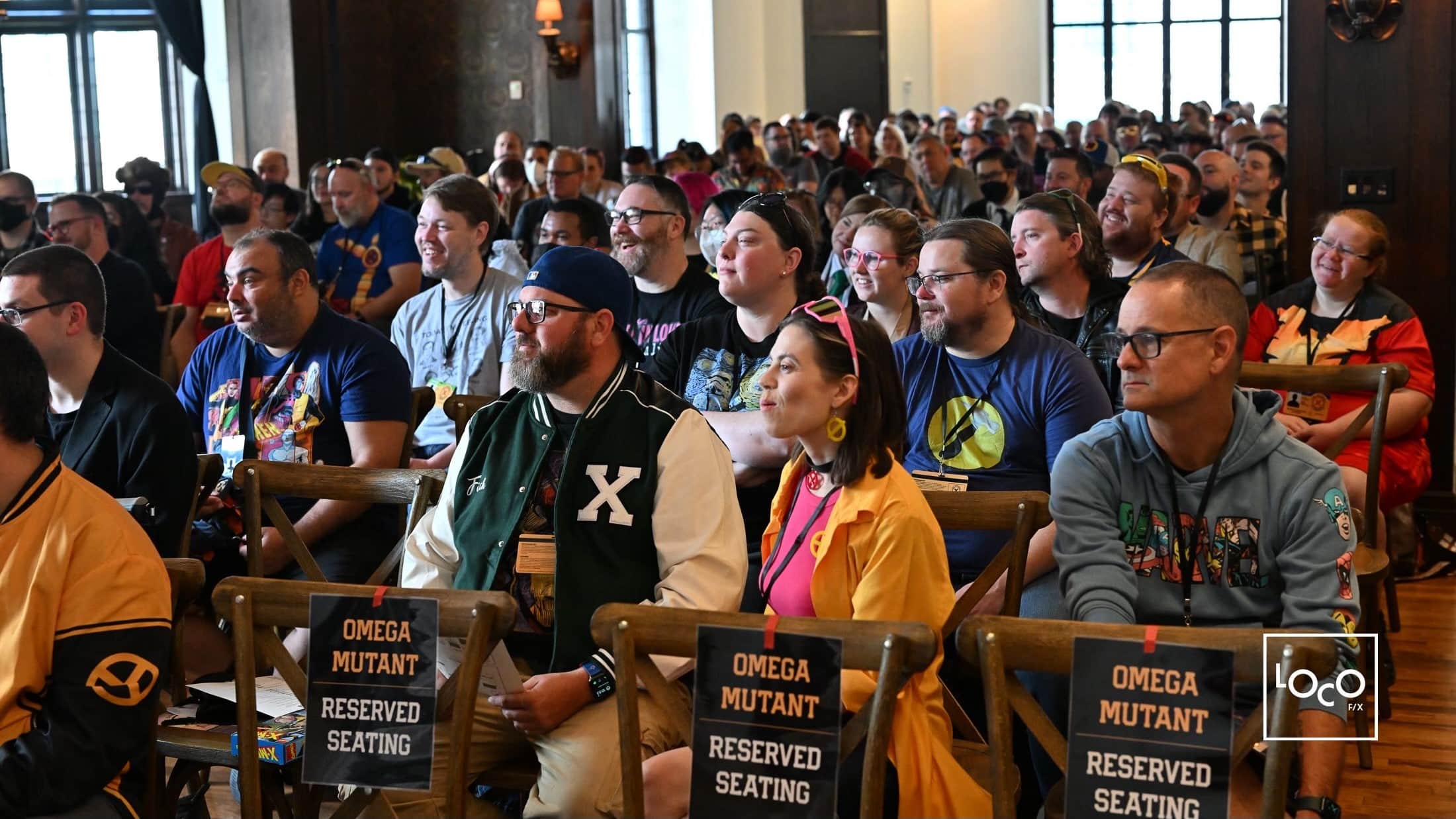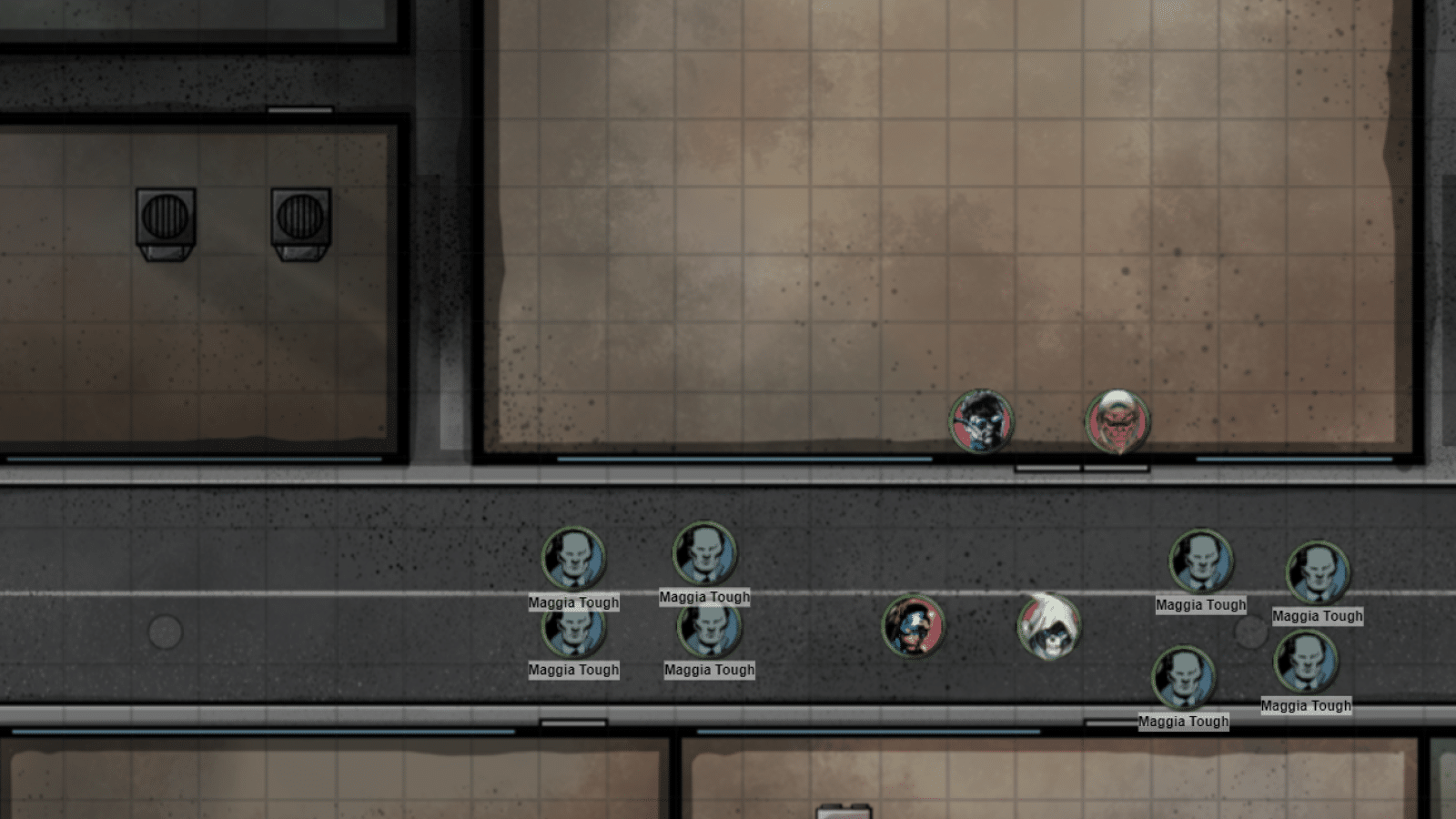“We’re made up of all the things that happen to us. The good things fill your heart. But the bad things, and what we choose to do with them, really make us who we are,” says Casey Brinke, cosmic EMT, in Doom Patrol #5. “I’ll keep choosing love.”
And then she lights the match that will burn down the sentient genderfluid comic book store/ambulance that brought her to life, to save all of reality.
Just another day in the Doom Patrol. DC Comics’ strangest superheroes have always stood out among the crowd. From their inception in the 1960s as an odd alternative to Marvel’s Fantastic Four to the avant-garde, mind-bending runs of Grant Morrison and Rachel Pollack of the 1980s up through the present day where they star in a critically acclaimed television series on HBO Max.

It came as no surprise in 2016 when DC announced that Gerard Way, the My Chemical Romance frontman turned scribe behind beloved comic series such as The Umbrella Academy, would be relaunching the offbeat team with rising star artists Nick Derington and Tamra Bonvillain joining him for the ride. The revival would bring back beloved mainstays like Robotman, Crazy Jane and Negative Man while infusing the team with new blood in the form of Lucius, a teenage skateboarding warlock, and the lead of the series, the aforementioned Casey Brinke. With a catalog full of gonzo, original comics, and a well-known mentorship under Doom Patrol legend Grant Morrison under his belt, no one doubted that Way would honor the title’s utterly strange history. Still, few could have expected the series would provide as heartfelt and powerful a treatise on the nature of superheroes and love itself as comics have seen in a decade.
Casey, the closest character the book has to a focal point, embodies the best things about superhero comic books. She is ridiculous and fun, earnest and heartfelt, inspiring and compelling and, above all else, a complete Space Case, which is also her hero codename. Whereas other members of the Patrol have powers and stories representing everything from body dysphoria to crippling depression, Casey represents the best of us, which makes sense, as she was born a fictional superhero given life and agency through a series of improbable events. In a secret origin that could only happen in comic books (and only one as willing to embrace the strange as Doom Patrol), Casey is revealed to be the wholly artificial creation of Danny the Street, a longtime Doom Patrol supporting player having grown from a sentient street to a near-godlike warper of reality. That’s fine with Casey, though. After a brief existential crisis, she accepts the story of her birth but refuses to let anyone dictate what makes her any less real than everyone else in the world. Every decision she makes, every life she saves, every person she loves. Those are her choices, choices to help and to heal, and they are real, and nothing, and no one, could ever take that away from her.

While Space Case’s proudly pansexual heart is big and loving enough to both accommodate sentient cat-man Lotion and supervillain’s daughter-turned-roomie Terry None, her love isn’t the only one worth following in Doom Patrol. It isn’t even the only type of love showcased. Doom Patrol, as a series, has always traded in the idea of found family. From a toxic one bound together by an abusive central figure in Niles Caulder to one borne of support and aid for outcasts and weirdos who have nowhere else to turn, love and acceptance have been a fixture of the team for decades. 2016’s incarnation of the group is no different. Unlike Casey, Lucius, the team’s new high-school punk rock spellcaster, is bound in familial love. His father, and Casey’s EMT co-worker, Sam, desperately tries to form any sort of connection with Lucius, having grown apart since Lucius’ mom left to join a cult (one run by fellow Doom Patrol member Crazy Jane, of course). Meanwhile, Cliff Steele processes his pain and longing for longtime friend and ally Jane into a healthier, supportive platonic love. Even Larry Trainor, the Negative Man, a being fueled by negative emotions and feelings, confronts his desire to help and protect those who cannot defend themselves, even if it means he spends the rest of his days bound to another living being and forced to rely on the worst emotions of those around him. A noble sacrifice made out of love and respect for life in all its forms.

Perhaps no more magnificent example of the power and capacity for love exists in the series than Danny, a living being who loves just about every person and creature he comes into contact with and wishes to help them live their best lives. Even when those lives, such as in Casey’s situation, are borne out of fiction and Danny’s reality-shaking powers, they are equally as precious and worthwhile. Housed within the ambulance shell that is his primary form throughout the series is Dannyland, an entire realm of reality full of happiness and joy and populated by both the Doom Patrol and other creations of Danny’s endless capacity to welcome and love. Even after nightmarish torture from a cosmic capitalist nightmare corporation seeking to turn Dannyland’s denizens into cheap mass-market foodstuffs, Danny remains optimistic and cheery. In the face of his death (don’t worry, he gets better), he spends his last moments thanking his would-be daughter Casey and telling her how proud he is that she exists. Danny knows that if he dies, he dies having made the world a better place and helped people when they could not help themselves, and that’s what matters in the end.
This idea is the message at the heart of Doom Patrol. Superheroes, in all their countless permutations and forms, are creations of love. Batman’s love for his parents fuels both his quest to protect others and his attempts to start his own Bat-Family. Wolverine’s loneliness and pain being healed by his newfound family in the X-Men and the joy, warmth and, yes, the love they bring him are the reason he keeps getting back up after every mortal wound. Superman, the most primal and iconic hero of them all, possesses a love so deep and abiding that he will always, always, see the best of humanity and try to guide us to the potential of which we are capable. Doom Patrol goes even a step beyond this, introducing the God of Superheroes, the original wellspring of all superheroes throughout reality and fiction. Unfortunately, by the time we meet him, he is very thoroughly dead.
At the end of Doom Patrol #1, the God of Superheroes is shown murdered, having his head caved in by Danny the Street in the form of a brick. Throughout the series, we learn his murderer is The Disappointment, a would-be superhero created as part of an action figure line designed to capitalize on excess parts at a toy manufacturer. When said parts were discovered to be highly toxic, The Disappointment found himself reviled and erased from his narrative, sent to the realm of fiction-beyond-fiction that the God of Superheroes called home. In a fit of jealousy and rage, The Disappointment uses Danny, a being of love, to murder the cosmic god and tries to take his place. Of course, he can’t fill the role. The love within his heart had long since withered away, left with toxic self-loathing and a vengeful desire to have everyone else suffer as he had.
The Disappointment’s ultimate plot is a drastic one: to cut off the stream of narrative that keeps every fictional world alive and well and blink every story out of existence. His scheme, of course, catches the Doom Patrol’s attention, and the two clash just before everything crumbles around them. Interrupting The Disappointment’s sham wedding to long-absent Doom Patrol member Elasti-Girl (an act justified as a dramatic flourish to end the narrative on, but the use of an expression of love remains a clear cry for help), the Doom Patrol stops his reality-ending plan at the last minute. Confronted by Crazy Jane, The Disappointment tries to cut the cord before his impending death, but Jane does what heroes do best. “I can’t fix your life … but I can fix your heart,” she says, reawakening the long-dormant emotions within the villain, allowing him to die feeling the love and forgiveness he had denied himself for so long.
Superheroes will save us all, even from ourselves. Doom Patrol, more than just about any comic out there, embraces this truth. Its heroes are damaged goods, scarred and hurt by a world that shuns them while living lives that are anything but easy. Yet, when no one could blame them for being bitter and spiteful, they instead use their pain to help and support both each other and anyone else they can. Their brand of heroics might not be pretty, and they may sometimes stumble and fall, but with their family members by their side, they will always have help getting back on their feet. They’ll save lives and fight supervillains — they’re comic book heroes after all — but more often than not, the lives they save are their own. They give each other hope and comfort every day, when they may not be able to do so themselves.
There are dozens of reasons to read Doom Patrol. Way’s ability to juggle meta-fictional narratives while producing snappy, engaging dialogue and approachable characters is unparalleled. Derington’s art is among the best in the business, creating iconic, clean depictions of superheroics and heartfelt emotional beats. Bonvillain’s coloring is an unsung marvel, jumping genre seamlessly to match the mood, providing the glue that holds the entire project together. Hell, maybe you just want to read a comic where a cranky robot man punches a bunch of businessmen and some cute girls kiss.

In the hellish world that is 2020; however, the reason that resonates most with me is a simple one: It’s a story about a bunch of misfits who love each other very much and stand together in the face of a world that doesn’t understand or accept them, knowing that as long as they have each other, it will be okay. That’s something I need in my life right now, and maybe you do, too.
" data-author-type="
Warning: Undefined array key "type" in /home4/xavierf2/public_html/wp-content/plugins/molongui-authorship/views/author-box/html-layout.php on line 18
" data-author-archived="
Warning: Undefined array key "archived" in /home4/xavierf2/public_html/wp-content/plugins/molongui-authorship/views/author-box/html-layout.php on line 19
">
Warning: Undefined array key "id" in /home4/xavierf2/public_html/wp-content/plugins/molongui-authorship/views/author-box/html-layout.php on line 39
-"
Warning: Undefined array key "archive" in /home4/xavierf2/public_html/wp-content/plugins/molongui-authorship/views/author-box/html-layout.php on line 40
itemscope itemid="" itemtype="https://schema.org/Person" >
Warning: Undefined array key "img" in /home4/xavierf2/public_html/wp-content/plugins/molongui-authorship/views/author-box/parts/html-avatar.php on line 4
Warning: Undefined array key "show_social_web" in /home4/xavierf2/public_html/wp-content/plugins/molongui-authorship/views/author-box/parts/html-socialmedia.php on line 6
Warning: Undefined array key "show_social_mail" in /home4/xavierf2/public_html/wp-content/plugins/molongui-authorship/views/author-box/parts/html-socialmedia.php on line 7
Warning: Undefined array key "show_social_phone" in /home4/xavierf2/public_html/wp-content/plugins/molongui-authorship/views/author-box/parts/html-socialmedia.php on line 8
Warning: Undefined array key "type" in /home4/xavierf2/public_html/wp-content/plugins/molongui-authorship/views/author-box/parts/html-name.php on line 17
Warning: Undefined array key "type" in /home4/xavierf2/public_html/wp-content/plugins/molongui-authorship/views/author-box/parts/html-name.php on line 19
Warning: Undefined array key "type" in /home4/xavierf2/public_html/wp-content/plugins/molongui-authorship/views/author-box/parts/html-name.php on line 21
Warning: Undefined array key "archive" in /home4/xavierf2/public_html/wp-content/plugins/molongui-authorship/views/author-box/parts/html-name.php on line 37
Warning: Undefined array key "name" in /home4/xavierf2/public_html/wp-content/plugins/molongui-authorship/views/author-box/parts/html-name.php on line 41
Warning: Undefined array key "bio" in /home4/xavierf2/public_html/wp-content/plugins/molongui-authorship/views/author-box/parts/html-bio.php on line 8





